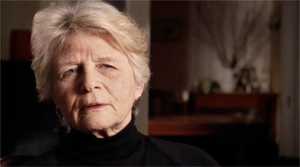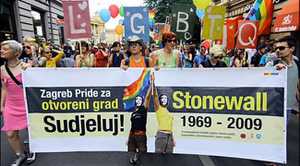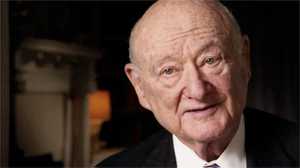Why Did the Mafia Own the Bar?
At the time of the 1969 Stonewall Uprising, the Greenwich Village bar Stonewall Inn was owned and operated by the New York Mafia.

Organized crime families owned the majority of the city's gay bars and clubs in an unlikely but mutually beneficial association that lasted throughout the late 1960s.
In the early 1960s, while homosexuality was legal in the state of New York, establishments openly serving alcohol to gay customers were considered by the State Liquor Authority (SLA) to be "disorderly houses," or places where "unlawful practices are habitually carried on by the public." The SLA refused to issue liquor licenses to many gay bars, and several popular establishments had licenses suspended or revoked for "indecent conduct." Businesses that remained open were frequently raided by the police.
Already a strong presence in New York, members of the Mafia saw a business opportunity in catering to the otherwise shunned gay population. By the mid-1960s, the Genovese crime family controlled the majority of gay bars in Greenwich Village, a neighborhood in southern Manhattan that was quickly becoming a hub for the city's burgeoning gay community. In 1966, young Genovese family member Tony Lauria purchased the Stonewall Inn, then a low-earning 'straight' bar and restaurant. "Fat Tony," as he was known, renovated at low cost and reopened the Christopher Street club as a gay bar, controlling everything from the jukebox to the cigarettes. He bribed New York's Sixth Police Precinct with around $1,200 a month to turn a blind eye to the goings on at the establishment.
To circumvent liquor license laws, the Stonewall Inn operated under the guise of a private "bottle club" -- a practice not unusual for New York's gay bars at the time. Unlike public bars, private clubs did not require a liquor license, and they were not as easily entered into or raided by the police. To maintain the illusion of a club's exclusivity, Stonewall required patrons to sign their names in a book upon entry, therefore indicating their membership. (Pseudonyms were used almost exclusively, however.)
With little police enforcement of local laws, Fat Tony was able to cut corners on safety and hygiene. Bartenders did not have access to running water behind the bar, so often served drinks in dirty, used glasses; many Gay Rights groups blamed the Stonewall for a 1969 outbreak of hepatitis among its patrons. In violation of city code, Stonewall also lacked a rear exit, leaving the narrow front door as the only escape in the event of a fire or emergency. The alcohol served at the bar (rumored to be stolen or bootlegged) was watered-down and sold to patrons at top-shelf prices.
Stonewall's owners also reportedly engaged in extortion. Employees singled out wealthy patrons who were not public about their sexuality, and blackmailed them for large sums of money with the threat of being 'outed.' This practice eventually became the most profitable aspect of the Mafia's club management.
Despite the police pay-offs, Mafia-run establishments were not exempt from state laws, and owners were prepared for regular raids. If a bar was shut down by police or the SLA, most owners could pick up and relocate the entire operation to a nearby alternate space, filing new liquor licenses under new names. Managers kept few liquor bottles actually on the premises, as they would be confiscated during a police raid. Rather, alcohol was often stored nearby in a parked car, or in some cases, behind a hidden panel in the wall. With these precautions, an owner like Fat Tony could open for business the day following a raid having suffered few losses.
While patrons complained about the poor conditions and underhanded business tactics that characterized Mafia-controlled gay bars and clubs like the Stonewall Inn, they also accepted that they would not likely have existed without the Mafia. After the Stonewall Riots, the club changed ownership, and within months the Mafia had closed the bar. Today, the Stonewall Inn is a National Historic Landmark and has been restored to its former status as a popular gay bar.







